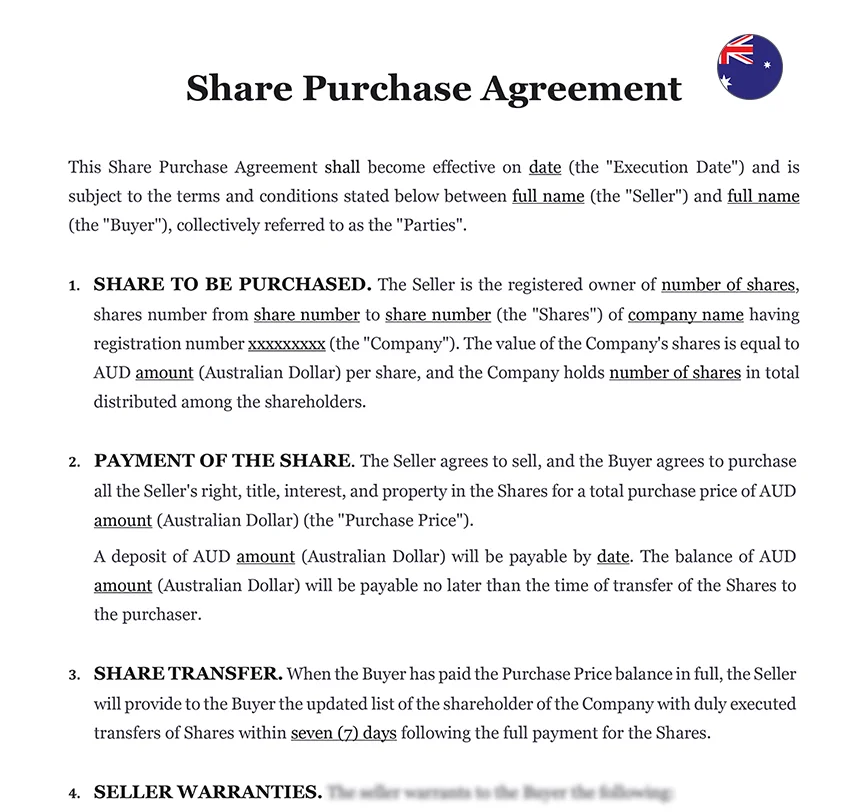Ready to use legal template
Drafted by experienced lawyers
Compliant with Australian law
Ready to use legal template
Drafted by lawyers
Compliant with Australian law
Home › Business contracts › Share purchase agreement
Learn more about Share Purchase Agreement in Australia
A Share Purchase Agreement (SPA) is a legally binding contract that outlines the terms and conditions for the sale and transfer of shares in a company. It defines key aspects such as the purchase price, payment terms, warranties, and obligations of both the buyer and seller. In Australia, a well-drafted SPA is crucial for ensuring compliance with corporate laws, including the Corporations Act 2001 (Cth), and protecting the interests of all parties involved. Whether you are acquiring a majority stake, selling your shares, or entering a joint venture, a clear and comprehensive SPA minimizes risks and prevents future disputes. At Themis Partner, we provide an easy-to-edit Share Purchase Agreement in Word format, drafted by experts for use in Australia. Download it today to ensure a smooth and legally sound share transaction.
Table of contents
-
What is a share purchase agreement in Australia?
-
What are the main components included in a share purchase agreement in Australia?
-
How do share purchase agreements differ from asset purchase agreements in Australia?
-
What legal considerations should be taken when drafting a share purchase agreement?
-
What are the tax implications of share purchase agreements for buyers and sellers in Australia?
-
How can due diligence be conducted effectively for a share purchase agreement?
-
What steps are involved in the execution of a share purchase agreement?
What is a share purchase agreement in Australia?
In Australia, a share purchase agreement (SPA) is a legally binding contract between the buyer and seller of shares in a company. This agreement outlines the terms and conditions of the share transaction, including the purchase price, payment terms, representations and warranties, conditions precedent, and post-completion obligations. SPAs are commonly used in mergers and acquisitions to facilitate the transfer of ownership and control of a company’s shares from one party to another.
What are the main components included in a share purchase agreement in Australia?
Key components or clauses typically included in a share purchase agreement in Australia may include:
| ➤ Identification of the parties (buyer and seller) |
| ➤ Description of the shares being sold |
| ➤ Purchase price and payment terms |
| ➤ Representations and warranties of the seller regarding the shares and the company |
| ➤ Conditions precedent to the completion of the transaction |
| ➤ Indemnification provisions |
| ➤ Covenants of the parties |
| ➤ Closing arrangements and post-completion obligations |
| ➤ Governing law and jurisdiction |




